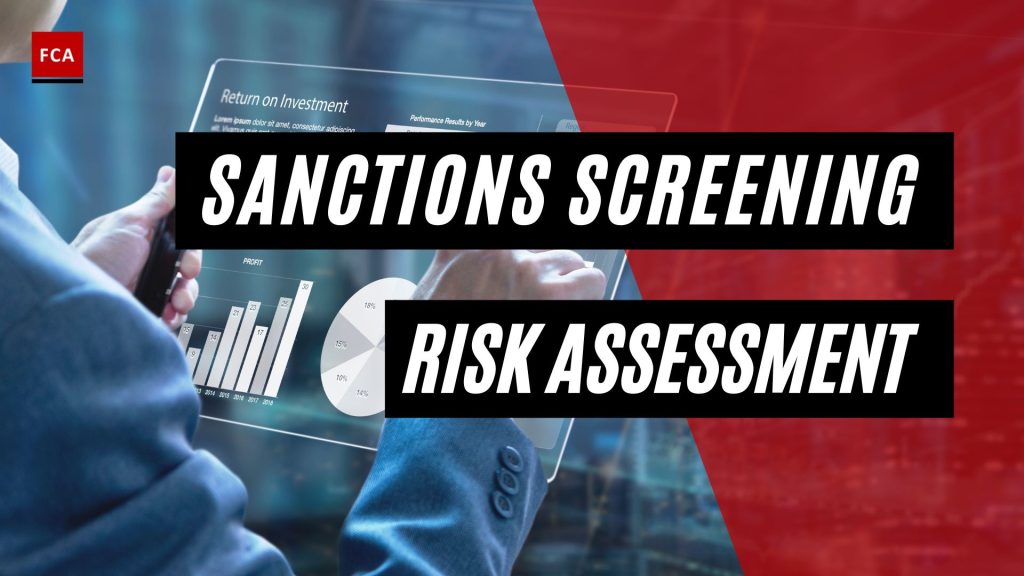The sanctions screening risk assessment process is performed periodically to assess the impact and likelihood of potential sanctions risks. This helps in the prevention of the occurrence of sanctions risks because relevant sanctions compliance controls are applied based on risk assessment.
Sanctions Screening Risk Assessment
The sanctions risk identification is a process that involves the review of regulatory requirements, review of historical transactions, and sanctions compliance breaches. Risk identification also involves the analysis of various conditions that highlight the breaches of internal controls, and any possible management bias for the actual financial crime incident.
The identification process is also a forward-looking activity to assess the possibilities of reoccurrence of sanctions risks and incidents. To assess the reoccurrence, the investigators analyze the historical data, in addition to currently available data, to establish the inter-connections between them. This connection assessment helps in the prediction of possible future sanction non-compliances.
To detect the incidents, all the processes and activities are studied to find the sanctions compliance controls weaknesses and possible avenues, which may be exploited by the criminals. Sanctions risk detection is an ongoing process performed to assess the possibilities of occurrence of sanctions risks, in any particular area of the department. Sanctions risk assessment is defined as the ‘process of understanding and analysis of sanctions risks that the organization is certainly exposed to.
The possibility of occurrence of risks necessitates the risk assessment, periodically. Sanction incidents in organizations resulted in the depletion of profits, operating inefficiencies, and reputational losses. For organizations, risks are potential incidents and events that could occur and influence the achievement of the organization’s core objectives and goals.

Sanctions Risk Assessment
Sanctions risk assessment is about understanding the nature of such potential incidents and events and, taking appropriate measures to address the threats posed by such potential risks. Devising risk mitigation strategies based on the risk assessed is important because unaddressed sanctions risks may negatively hit the reputation of the organization. Risk assessment helps to evaluate the sanctions risks and report them to management.
To perform risk assessment, a knowledge base is created through meetings and coordination with different relevant people in the organization. Such coordination and meeting may include interviews, discussions, and observations of the processes and activities. Process owners are the people, who possess the actual knowledge base of the operations and activities, in their relevant departments, therefore, their input values the overall sanctions risk assessment process.
Risk assessment involves, the assessment of the likelihood of the occurrence of the risk and the potential impact it carries. Assessing the likelihood is a subjective process because usually relevant data or information is not available to the organization that accurately predicts the likelihood of a particular financial crime risk.
To assess the likelihood of the sanctions risks, the organization may consider various factors such as past incidents, the prevalence of risk in the industry, internal control environment, available data, prevention efforts by management, ethical standards followed, unexplained losses, customer complaints, etc.
Once the definition of impact and likelihood are assessed, the inherent impact risk assessment is performed for identified sanctions risks. Impact means the financial loss the organization may face if the risk occurs. The impact may also be linked with the reputation of the organization but usually, quantification elements are considered to assess the inherent impact of the risk. Based on general assessment and utilization of available information, the risk assessor develops or designs the preventive and detective sanctions compliance controls, in various processes and activities of the organization.

Final Thoughts
Sanctions screening refers to measures implemented within businesses that are intended to detect, prevent, or otherwise manage sanctions-related risks by detecting sanctioned individuals and/or organizations, as well as illegal activities to which these institutions may be exposed accidentally. Sanctions screening is an essential component of an efficient AML program, assisting firms in making prudent and compliance risk decisions. The legislation governing international sanctions are constantly developing and becoming more complex.








